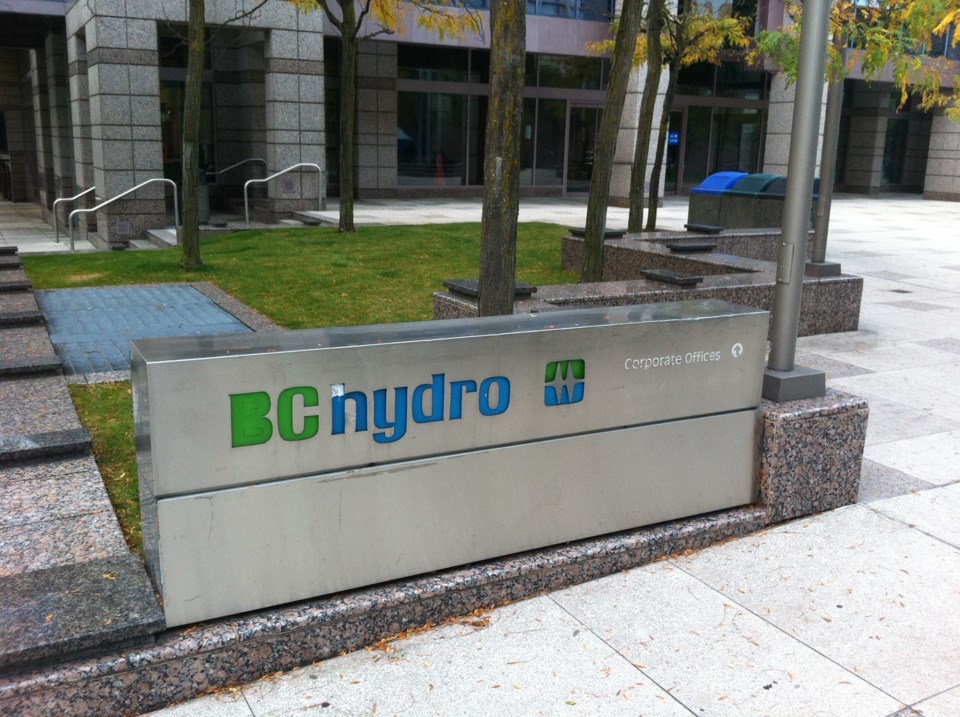 B.C. is being hailed for its balanced budget and increasingly being recognized for its comparatively strong economic performance.
B.C. is being hailed for its balanced budget and increasingly being recognized for its comparatively strong economic performance.
Finance Minister Mike de Jong is more than ready to accept the admiration, but continually warns that the province isn’t immune from challenges and that low commodity prices and other factors can still drag B.C. down.
He isn’t the only one keeping an anxious eye out for signs that a downturn might creep over the borders.
B.C. Hydro made a telling move last week that suggests the medium-range growth projections have a lot more uncertainty than usual attached to them.
The utility was days away from filing a three-year plan with the independent B.C. Utilities Commission when it cancelled the scheduled application. It submitted an interim one-year plan instead because it needs time to back up and re-examine load forecasts for the mining industry and the LNG proposals.
The one-year plan includes a four per cent rate hike starting in April that was scheduled in a longer-range plan. That plan also calls for a 3.5 per cent hike next year and a three per cent increase the year after.
Those hikes look to be locked in at this point, regardless of the re-examination. What’s on the table is how Hydro responds if major customers, existing and potential, start curtailing operations or cancelling projects. Those moves are already being made in mining and LNG, and they seem to alarm B.C. Hydro to the point where it postponed submission of the three-year plan.
B.C. Hydro CEO Jessica McDonald said it’s an unusual step and “more extensive than you can imagine.” It will take several months to re-examine the numbers and assumptions in the original plan.
If they turn out to be more optimistic than now looks to be warranted, a rate hike doesn’t seem to be in the cards. The only other option is to cut costs some more. The utility basically needs the BCUC to concur that its costs match its income.
Although B.C. Hydro is moving ahead with the mammoth $9-billion dam at Site C on the Peace River, the utility has been shedding costs over recent years.
McDonald said it has shed 800 jobs in the past several years and cut $400 million in costs. The controversial dividend it pays the government is scheduled to disappear until it gets into better financial shape. Some other significant shifts to cut costs could be in the offing. There are dozens of capital projects on the books, some of which could be postponed.
The re-examination will look at the slumping mining sector to see how many mines can be expected to continue operating through the price drops. The government announced a plan to let mines defer three-quarters of their electricity bills for up to five years to keep miners at work. Hydro wants to study how that would counterbalance the slump.
On the LNG side, Shell’s deferral of its final investment decision for a new plant until late this year also needs to be factored. As does Altagas’s decision last week to abandon its plans for a much smaller project.
Energy Minister Bill Bennett said if the mines start shutting down, Hydro could lose some important customers. He said the utility will form its own conclusions on when LNG plants might come into service, and start demanding power.
“We don’t tell Hydro when LNG Canada is going to do a final investment decision.”
The revised submission will be made public, and Bennett said Hydro hasn’t filed such a document for several years.
“Over the next year, everybody is going to have a look at what B.C. Hydro is thinking,” he said.
Over the longer term, Hydro is projecting steady growth in demand in all sectors — residential, commercial and industrial. It is projecting 20,000 new homes over the next three years, a one-million increase in population over the next 20 and a need for new power capacity even after the dam is completed in 2024.
Whether it is retrenching to avoid getting rapped by the commission for over-confidence, or out of real alarm over deteriorating conditions, can’t be determined until the new plan surfaces.



